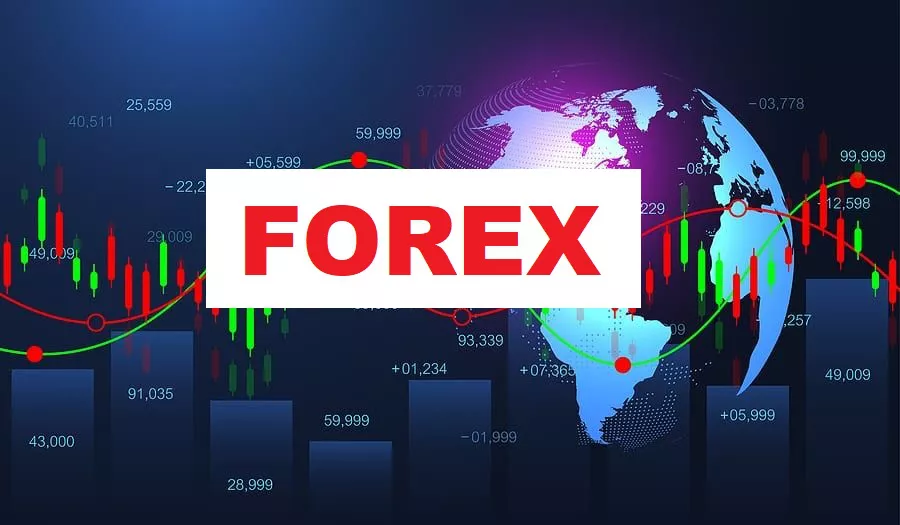Stock market fluctuations have always been a subject of intense interest and scrutiny for investors, analysts, and economists alike. The upward movement of stock prices, commonly referred to as a bull market, can generate significant returns for investors but also poses questions about the underlying drivers of this growth. Understanding why stocks are going up is crucial for making informed investment decisions, assessing market trends, and managing financial risk. This article aims to delve into the various factors that influence stock prices and contribute to their upward trajectory. By examining economic fundamentals, corporate performance, market sentiment, and external factors, we can gain a more comprehensive understanding of why stocks increase in value.
Economic Fundamentals
1. Macroeconomic Indicators
Macroeconomic indicators play a pivotal role in shaping the direction of stock markets. Key indicators such as Gross Domestic Product (GDP), inflation rates, unemployment levels, and interest rates provide insights into the overall health of an economy.
2. GDP Growth
GDP growth measures the overall increase in the value of goods and services produced by a country over a specific time period. Generally, a growing economy leads to increased corporate earnings and higher consumer spending, both of which are positive for stock prices. During periods of economic expansion, companies tend to experience higher sales and profits, boosting their financial performance and share prices.
3. Inflation Rates
Inflation, the rate at which the general level of prices for goods and services is rising, also affects stock markets. Moderate inflation can be beneficial for stocks as it often indicates a growing economy. However, high inflation can be detrimental as it erodes corporate profits and consumer purchasing power, leading to potential stock market declines. Central banks usually adjust interest rates to control inflation, and these adjustments can have significant implications for stock prices.
4. Unemployment Levels
Unemployment rates reflect the number of people actively looking for work as a percentage of the labor force. Lower unemployment rates indicate a healthy labor market and higher consumer confidence. This usually leads to increased spending and investment, which are positive for corporate earnings and stock prices. Conversely, high unemployment often signals economic distress and can pressure stock markets.
5. Interest Rates
Interest rates set by central banks influence the cost of borrowing and lending. Lower interest rates make it cheaper for companies to finance operations and expansions, leading to potentially higher earnings and stock prices. Additionally, lower interest rates can increase the appeal of stocks relative to fixed-income investments like bonds, driving demand for equities and pushing prices up.
Fiscal and Monetary Policy
Governments and central banks use fiscal and monetary policies to manage economic conditions and achieve macroeconomic objectives.
1. Fiscal Policy
Fiscal policy involves the use of government spending and tax measures to influence economic activity. Expansionary fiscal policy, characterized by increased government spending and tax cuts, aims to stimulate economic growth. This can lead to higher corporate profits and consumer spending, boosting stock prices. Conversely, contractionary fiscal policy, which involves spending cuts and tax hikes, can slow economic growth and pressure stock markets.
2. Monetary Policy
Monetary policy focuses on managing the supply of money and interest rates to influence economic conditions. Central banks like the Federal Reserve in the United States use tools such as open market operations, reserve requirements, and discount rates to control monetary policy. When central banks implement easing policies, such as lowering interest rates or engaging in quantitative easing (buying financial assets), it can increase liquidity, lower borrowing costs, and stimulate economic activity. These actions often lead to higher stock prices.
Corporate Performance
1. Earnings Growth
Corporate earnings are a fundamental driver of stock prices. When companies report strong earnings growth, it indicates that they are performing well financially and generating higher profits. This can lead to increased investor confidence and demand for the company’s stock, pushing prices up. Conversely, weak earnings or earnings misses can cause stock prices to decline.
2. Dividend Payments
Dividends are payments made by a company to its shareholders, typically out of its profits. Companies with a history of consistent and growing dividend payments are often viewed as financially stable and attractive to income-seeking investors. An increase in dividend payments can signal a company’s confidence in its future earnings and can lead to higher stock prices.
3. Share Repurchases
Share repurchases, also known as buybacks, involve companies buying back their own shares from the market. This reduces the number of shares available for trading, which can increase the demand for the remaining shares and push prices up. Share repurchases are often seen as a sign of management’s confidence in the company’s future prospects and its commitment to enhancing shareholder value.
4. Mergers and Acquisitions
Mergers and acquisitions (M&A) activity can also influence stock prices. When a company acquires another, it often does so to expand its operations, diversify its business, or gain access to new markets. If the acquisition is perceived as strategically beneficial and value-enhancing, it can lead to a rise in the acquiring company’s stock price. Conversely, if the acquisition is viewed as overpriced or risky, it can pressure the stock price.
Market Sentiment
1. Investor Confidence
Investor confidence plays a significant role in shaping stock market movements. When investors are confident about the economy and corporate earnings, they tend to buy more stocks, driving prices up. This positive sentiment can create a self-fulfilling cycle where rising stock prices lead to further increases in investor optimism and buying activity.
2. Market Psychology
Market psychology refers to the emotional and cognitive factors that influence investor behavior. Fear and greed are two primary emotions that drive market sentiment. During bull markets, greed often takes over, leading investors to be more optimistic and willing to take risks. This risk-taking behavior can push stock prices higher as investors chase returns. Conversely, during bear markets, fear can dominate, leading to widespread selling and price declines.
3. Technical Analysis
Technical analysis focuses on the study of past market data, such as price movements and trading volumes, to predict future trends. Technical indicators and chart patterns can provide insights into investor sentiment and market trends. For example, breakouts above key resistance levels can signal a shift in investor sentiment towards optimism, leading to further increases in stock prices.
4. Media and Social Media
The media and social media play a significant role in shaping investor sentiment. News reports, analyst recommendations, and social media buzz can quickly spread information and influence investor perceptions. Positive news about corporate earnings, economic growth, or policy changes can create a bullish sentiment, driving stock prices up. Conversely, negative news can spark selling and price declines.
External Factors
1. Geopolitical Events
Geopolitical events, such as trade wars, elections, and geopolitical tensions, can have significant impacts on stock markets. These events can create uncertainty and volatility, affecting investor sentiment and stock prices. For example, trade wars can lead to tariffs and disruptions in global supply chains, impacting corporate earnings and stock prices.
2. Commodity Prices
Commodity prices, particularly those of key inputs like oil and metals, can affect stock prices. Rising commodity prices can increase production costs for companies, pressuring their earnings and stock prices. Conversely, falling commodity prices can reduce costs and boost earnings, leading to higher stock prices. Additionally, commodity-related stocks, such as those in the energy and mining sectors, can be particularly sensitive to changes in commodity prices.
3. Currency Fluctuations
Currency fluctuations can also impact stock prices, particularly for multinational companies. A stronger domestic currency can make exports less competitive and reduce foreign earnings when converted back into the domestic currency. This can pressure stock prices for export-oriented companies. Conversely, a weaker domestic currency can make exports more competitive and increase foreign earnings, boosting stock prices.
4. Technological Advancements
Technological advancements can create new opportunities and disrupt existing industries, affecting stock prices. Companies that successfully leverage new technologies, such as artificial intelligence, big data, and renewable energy, can experience significant growth in earnings and stock prices. Conversely, companies that fail to adapt to technological changes can face declines in their competitiveness and stock prices.
Conclusion
Understanding why stocks are going up requires a comprehensive analysis of various factors, including economic fundamentals, corporate performance, market sentiment, and external events. Macroeconomic indicators like GDP growth, inflation rates, unemployment levels, and interest rates provide insights into the overall health of an economy and its impact on stock markets. Corporate earnings, dividend payments, share repurchases, and M&A activity are fundamental drivers of stock prices. Investor confidence, market psychology, technical analysis, and media influence shape market sentiment and can lead to upward movements in stock prices. Geopolitical events, commodity prices, currency fluctuations, and technological advancements are external factors that can significantly impact stock markets.
By considering these factors, investors can gain a more informed perspective on why stocks are increasing in value. This understanding can help them make more informed investment decisions, assess market trends, and manage financial risk. While stock market movements are inherently unpredictable, a thorough analysis of these factors can provide valuable insights and guide investors in navigating the complex and volatile world of stock markets.
Related topics:


































